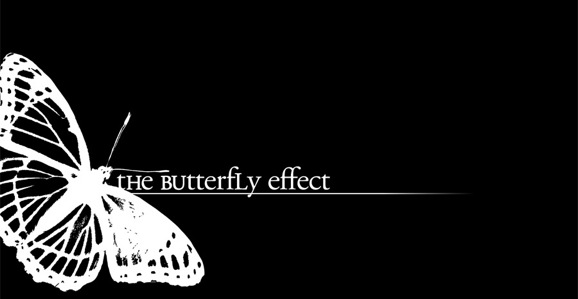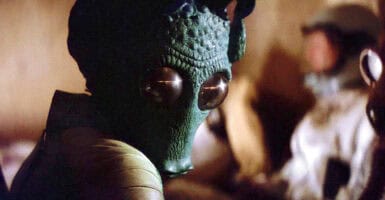The Butterfly Effect Is Getting A Reboot, For Some Reason
This article is more than 2 years old
 Here’s a piece of news for today’s, “what the hell is wrong with Hollywood” file. The Butterfly Effect is being rebooted. Yes, that Butterfly Effect. The one with Ashton Kutcher. The one that was made in 2004. And here’s the kicker, it’s the original creators of the film that are doing it.
Here’s a piece of news for today’s, “what the hell is wrong with Hollywood” file. The Butterfly Effect is being rebooted. Yes, that Butterfly Effect. The one with Ashton Kutcher. The one that was made in 2004. And here’s the kicker, it’s the original creators of the film that are doing it.
Variety broke the story that FilmEngine and Benderspink are teaming up for perhaps the most unnecessary remake ever. Seriously, we’re talking movie that is less than a decade old. This is even worse than remaking Vanilla Sky or Reykjavik-Rotterdam (remade as Contraband). At least those make a smidge of sense, they were remade for English-speaking audiences (we don’t like to read, that’s why we go to movies in the first place).
The Butterfly Effect was a big enough hit. It took in $96 million with a budget of $13 million. It’s success inspired a pair of terrible direct-to-video sequels, the most recent in 2009, so they’ve already squeezed just about every single cent they possibly can out of the franchise. And there isn’t exactly a huge groundswell of fan outcry to revisit this world, at least not that I’m aware of. Though the original isn’t a great film, it isn’t the worst. However, it is frequently mocked for Kutcher’s performance, which is the worst, and dooms the film to always be remembered as “an Ashton Kutcher movie.” No one deserves that.
The title of The Butterfly Effect references a particular tenet of chaos theory, which you may remember Jeff Goldblum explaining to us all in Jurassic Park. The basic idea is that small factors can cause great, unpredictable consequences, like a butterfly flapping its wings in China can cause a hurricane thousands of miles away in the Gulf of Mexico. The story revolves around a man (Kutcher) who repeatedly travels back in time to right a particular wrong. Only every time he jumps, minute decisions and variances ripple throughout time and lead to his situation getting worse and worse in the present with each successive jump. You may also remember this comes us quite a bit in the Back to the Future movies.
Even crazier to me than the simple fact this is apparently happening, is the people involved. Like I mentioned earlier, this project prominently features key players from the original. Producers Anthony Rhulen, Chris Bender, and J.C. Spink, all filled that same role on the first go round, and writer/director Eric Bress is writing the script, a script he already wrote. Maybe we’re in the movie. Did anyone else just get a chill?
That has to be something of a slap in the face. You wrote and directed a movie that someone wants to remake, and they want you to write the script, again, but they’re like, “oh, hey, about that directing thing, we’re going another way.” I guess Bress could still get the job, as no director has yet volunteered to fall on that grenade.
This brings up the question of why revisit your own film? Do you think Bress has some burning desire to tell this story again? Are there things he wanted to do the first time, but couldn’t? Did he want to wipe away some of the stain left by Ashton Kutcher? My bet is that he’s most likely looking for a paycheck—his most recent IMDb credit is from The Final Destination in 2009—but maybe I’m being cynical.
This leads me to yet another question, this time for the behind the scenes type folks. If you’re rebooting a franchise, why bring in the person responsible for the original? That seems like a recipe for getting the exact same thing, and if you’re going to wind up with the same movie, what the hell is the point?












